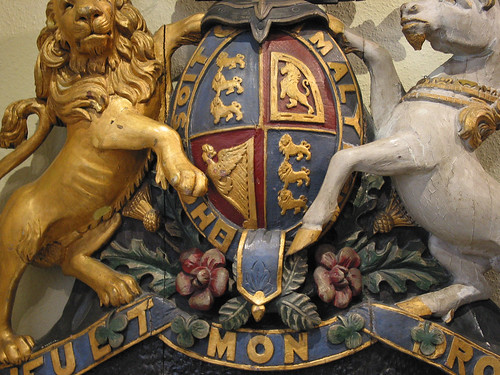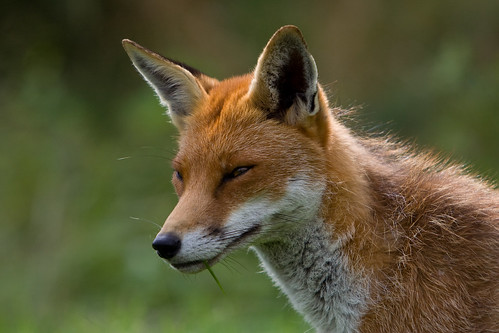Not a list of creatures you can see in a zoo, but the menagerie invoked in the first Scene of Act 3 of The First Part of the Contention … (Henry VI, Part 2).
It is quite a list – deliberately extending earlier references to both the domesticated and wild and linking them to the Duke of Gloucester (most are used with reference to him) the King and the realm of England itself.
 Some carry a weight of obvious symbolism – the Lion, as king of the jungle is also the animal seen ‘rampant’ as representation of England itself (even Willy was a lion – the first ‘mascot in any Soccer World cup – now copied ad nausea and sub-intellect into every sporting event). Ravenous lions are a powerful image – but incorporate a residual (at least for the ‘true’
Some carry a weight of obvious symbolism – the Lion, as king of the jungle is also the animal seen ‘rampant’ as representation of England itself (even Willy was a lion – the first ‘mascot in any Soccer World cup – now copied ad nausea and sub-intellect into every sporting event). Ravenous lions are a powerful image – but incorporate a residual (at least for the ‘true’  Englishman – and if you saw the mustache and leg hair on the average English beauty you’d know that was not sexist) jingoism and a degree of pride (sorry for the pun) in strength.
Englishman – and if you saw the mustache and leg hair on the average English beauty you’d know that was not sexist) jingoism and a degree of pride (sorry for the pun) in strength.Lambs take on the inevitable representation of sacrifice and the christian association with Christ – as well as provoking the sentimental in urban dwelling moderns: Not an ‘original’ Elizabethan sentiment perhaps.
 And of course – the lion shall lie down with the lamb – not exactly a threat in the long term.
And of course – the lion shall lie down with the lamb – not exactly a threat in the long term.A careful look at the list of animals reveals several ‘double edged’ and consequently ‘interpretable’ linkages.
 If the fox is a predator on chickens he is also respected for his cunning – and as long as that cunning is used for good purposes it can be an appellation of respect ( it should be remembered that Shakespeare used ‘Foxes’ Book of Martyrs as a source) – chickens are silly, ‘headless’ creatures which make a lot of noise – begging the question, ‘Who, in this play, are the chickens?’
If the fox is a predator on chickens he is also respected for his cunning – and as long as that cunning is used for good purposes it can be an appellation of respect ( it should be remembered that Shakespeare used ‘Foxes’ Book of Martyrs as a source) – chickens are silly, ‘headless’ creatures which make a lot of noise – begging the question, ‘Who, in this play, are the chickens?’The King – who in this scene loses all the respect gained during his last appearance and is revealed as weak and ‘empty headed’- could certainly be seen as the chicken – but if the king is the head, then the dukes and the Kingdom are in fact the fowl so foolish. There plots and counter-plots, their clucking complaints and their single-minded stupidities are the very reflection of a bunch of farmyard hens.
Doves and snakes seem less ambiguous but both reference back to the ‘Book of Genesis’.
 The Dove – as a symbol of love and peace – is the superficial reference made by most commentators … but in the play it is the King who first uses it in this scene – and his religiosity suggests the need to dig a little deeper: The dove is the bird that brings the leaf to Noah in his ark – a pointer to a future on dry land and final ‘saving’ after turbulent times.
The Dove – as a symbol of love and peace – is the superficial reference made by most commentators … but in the play it is the King who first uses it in this scene – and his religiosity suggests the need to dig a little deeper: The dove is the bird that brings the leaf to Noah in his ark – a pointer to a future on dry land and final ‘saving’ after turbulent times. The Snake – with its definite reference to Aesop and with a proverbial linkage - is also inescapably knee-jerk linked to the Satan/serpent of the Garden of Eden. For the Queen, daughter of Eve as she is (and French daughter of Eve at that), to raise the devil is an inevitable ‘back-fire’ with an audience schooled each Sunday in the sins of our progenitors.
The Snake – with its definite reference to Aesop and with a proverbial linkage - is also inescapably knee-jerk linked to the Satan/serpent of the Garden of Eden. For the Queen, daughter of Eve as she is (and French daughter of Eve at that), to raise the devil is an inevitable ‘back-fire’ with an audience schooled each Sunday in the sins of our progenitors.
The wolf is a pack animal – the Eagle is a noble bird: Not the intended meaning given by York as he hypocritically works against Gloucester and the King under the guise of legality.

Crocodiles and Porcupines are a touch exotic – and hence suspicious …weakening in this English context any power they might have and more suggestive of flights of fancy and trivial image making than serious insight.
At which point I go back to my last post –
and show itself, attire me how I can
the Duchess’s exiting lines and reminder that the truth will out in the end.
Having been both a writer of references for people applying for higher education and employment, and a reader of references written, one thing is certain – bad comments say more about the writer than the subject. The instant you read a negative comment you ask – why have you put that? – you don’t say, ‘really, that’s not a nice thing’.
Shakespeare’s loading of the negative comments here with the animal images is a fascinating exploitation of this phenomenon and a delicious insight (in our post-subconscious world) into the slip from domestic husbandry to vicious wildness that the country is making as it removes the final good shepherd from his post.





No comments:
Post a Comment